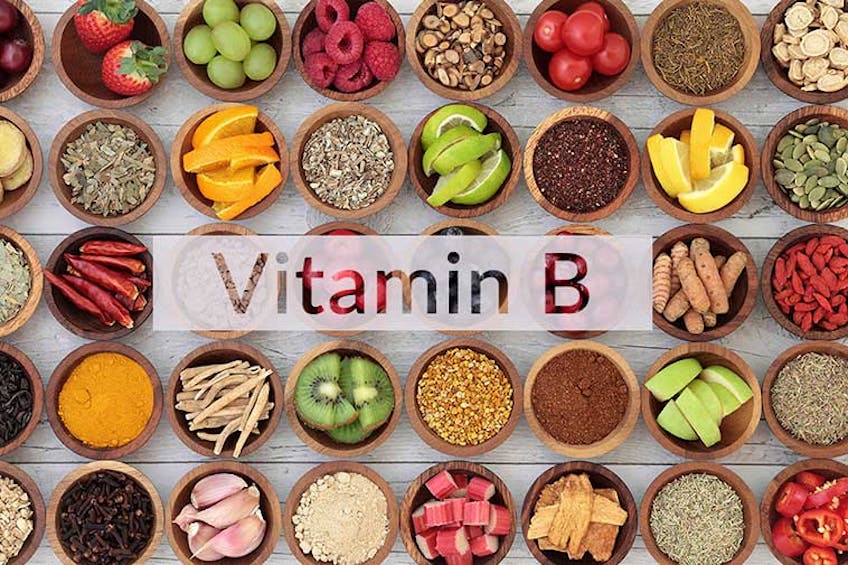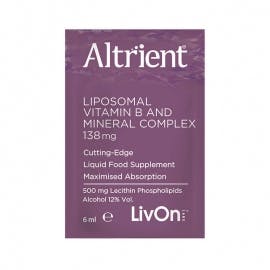Could B vitamins help banish the moody February blues?
You would think that by February most of us would be feeling a little more cheerful what with spring just around the corner. But according to statistics, February is actually the month when the number of people suffering from depression tends to peak. This is the month when you may find that your normal coping strategies for dealing with stress, unsettled relationships, fewer daylight hours and freezing cold weather just don’t seem to be as effective.
If the February blues have taken hold of your mood, then it’s a good idea to lighten up your lifestyle. Start by avoiding alcohol as this is a natural mood suppressant, next make sure you get out in the fresh air every day, even if just for a quick 15-30 minute power walk around the block and then set some time aside to review your food habits and nutritional status.
Are you getting enough B vitamins?
When it comes to foods and nutrients that contribute to mood and vitality, many nutritionists are likely to point you in the direction of B vitamins. This family of vitamins is found naturally in complex carbohydrates and wholegrains but these vitamins are often depleted during times of stress or when you’re burning the candle at both ends.
3 good reasons to check your Bs
Reason 1: To start with B vitamins are found in wholegrain foods so if you tend to buy the white stuff (white bread, white pasta, white rice) instead of the wholegrain options then you could be depleting your B vitamin status. B vitamins can also be found in mushrooms, lentils and pulses so adding these to your weekly shop is a smart move.
Reason 2: B vitamins are water-soluble which means they can be quickly leached from food during cooking. For instance, when boiling grains in water and draining away the cooking water some of the B vitamins go to waste.
Reason 3: Because B vitamins are water-soluble they are not stored in the body, which means they may become easily depleted. Since these vitamins have so many important roles to play in our health and physiology the body needs a plentiful supply. This means a daily intake of B-vitamins is pretty important especially if you want to lift your energy and mood because certain B vitamins are involved with brain chemistry and metabolism. Check out these amazing health benefits for all the different types of B vitamins…
- Vitamins B1, B2, B5, B6, B12 and niacin, contribute to normal energy yielding metabolism.
- Vitamins B2, B6, B12, niacin and folate contribute to reducing tiredness and fatigue.
- Vitamins B1, B6, B12, biotin, folate and niacin contribute to normal psychological function.
- Vitamins B1, B2, B6, B12, biotin, folate and niacin contribute to normal functioning of the nervous system.
- Vitamin B5 contributes to normal mental performance and the normal synthesis of some neurotransmitters.
What about B-vitamin supplements, are liposomal supplements the best?
A high-quality liposomal supplement such as Altrient offers the full spectrum of B vitamins and important minerals including zinc, selenium and chromium. These specific minerals have been carefully chosen to complement the mood and energy enhancing formula. Zinc for its contribution to cognitive function, selenium for its contribution to thyroid function and chromium because of its contribution to the maintenance of normal blood glucose levels – an absolute must if you want to sustain your energy levels throughout the day.
Most importantly Altrient liposomal supplements are delivered into the body in a form that is highly absorbent for a speedy route into the bloodstream and fast-track transport to cells where you need it most.
Top tips for a sunny disposition
Tip 1 – Brain boost!
The brain is a melting pot of cerebral activity sending out important signals and instructions 24/7 and there are some complex interactions that occur to help generate different moods, feelings, emotions and sense of well-being. These are all formed from a delicate balance of brain chemicals called neurotransmitters all with unique ‘feeling’ characters – happiness, relaxation, anxiety, alertness and tension to name but a few.
Since vitamin B5 contributes to the normal synthesis of some neurotransmitters, it makes sense to utilise its brain health benefits. What’s more vitamins B1, B6, B12, biotin, folate and niacin all contribute to normal psychological function, so if you’re looking to stay on the right side of ‘happy’ supplementing with liposomal B vitamins might be the answer.
Tip 2 - Stress buster
There’s no doubt that a hefty dose of stress may leave you feeling knocked sideways and prolonged stress could leave you feeling depleted and washed-out. Unfortunately, we now have many more stressors than our ancestral physical body was originally designed to deal with.
There’s no halfway house with the stress response – once that stress switch has been tripped an all-in fight-or-flight response is launched! Thankfully, there’s one specific B-vitamin, called pantothenic acid or B5 that may save the day. Vitamin B5 contributes to the normal synthesis and metabolism of steroid hormones, helping to support the adrenal glands in the production of stress hormones.
Signs of adrenal fatigue include low energy, low mood, palpitations, light-headedness, anxiety, lethargy and poor sleep. Looking after your adrenal glands whilst also taking steps to reduce your stressors is a good foot forward on the path to a better, brighter mood.
Tip 3 - Monthly hormones
Most of the time our mood is mainly influenced by external factors but for some women, the ebb and flow of monthly hormones may create cyclical mood fluctuations that are hard to handle. In fact, there is one particular sub-group of Premenstrual Syndrome known as PMS-D for which the predominant symptom is depression lasting up to 7-10, or in some severe cases 14 days before menstruation. Researchers have discovered that for women suffering from PMS-D fluctuating oestrogen levels causes serotonin (our happy neurotransmitter) receptors in the brain to be desensitised, explaining the experience of depression during this phase of their cycle. Nutrients such as vitamin B6 have been found to contribute to the regulation of hormonal activity, which may offer some support during cyclical symptoms.
Tip 4 - Mission metabolism
There is a direct link between exercise and mood, which is why exercise gives you that feel good factor. Exercising helps to offset stress, support metabolism, oxygenate body cells and encourage circulation to the brain. Many nutrients particularly vitamins B1, B2, B5, B6, B12, niacin and biotin contribute to normal energy yielding metabolism, which is just what you need to help create movement and make ‘action’ happen.
The last thing you want to do if you’re feeling depressed is pound the treadmill or run a marathon but getting more active even with just a brisk walk around the block could really help to lift your metabolism and your spirits.
Tip 5 - Daylight dawning
You can’t expect everybody to be happy all the time! This phrase rings oh so true for those who suffer from Seasonal Affective Disorder commonly known as SAD. People who suffer from SAD are ultra-sensitive to the reduction in daylight hours which sets their mood compass to point towards depression from the onset of winter all the way until spring arrives. This is a really impactful condition where the depression may often interfere with their ability to perform at work, interact socially and cope with stressful situations.
Using a daylight bulb could help to increase the depleted serotonin levels which underpin this condition. Additionally, a diet rich in leafy greens, beans, nuts and wholegrains may help to support your mood. Vitamins B1, B6, B12, biotin, folate and niacin are important components of these types of food because of their contribution to normal psychological function.
Susie Debice BSc Hons, Dip ION, Food Scientists and Nutritional Therapist
REFERENCES
- Eva Calvaresi, Janet Bryan, B Vitamins, Cognition, and Aging: A Review, The Journals of Gerontology 2001; B, 56, 6: 337– 339,https://doi.org/10.1093/geronb/56.6.P327.
- Payne ME, Jamerson BD, Potocky CF, Ashley-Koch AE, Speer MC, Steffens DC. Natural food folate and late-life depression [published correction appears in J Nutr Elder. 2010 ;29(1):113]. J Nutr Elder. 2009;28(4):348–358. doi:10.1080/01639360903417181




